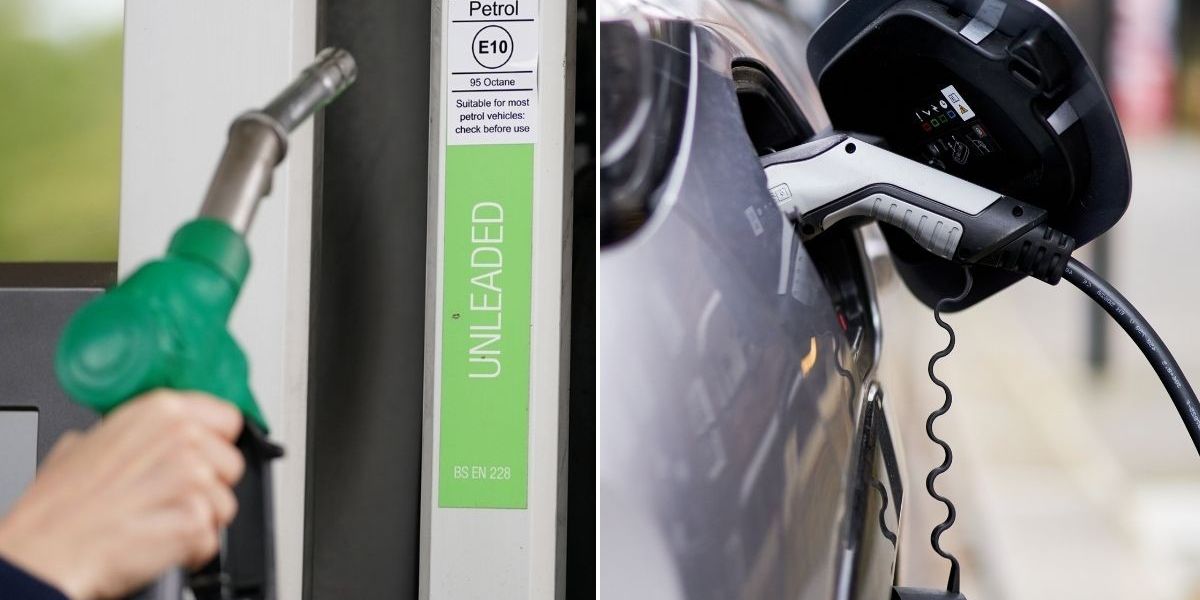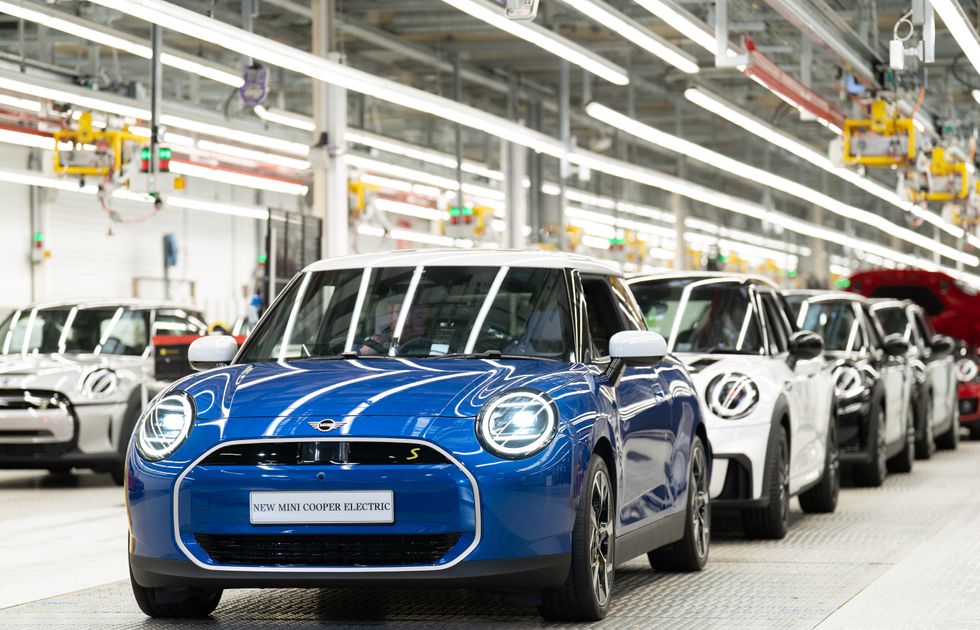



Petrol and diesel cars could face new reforms as part of the Government's ambitious plans to meet net zero targets, which have hit certain roadblocks.
The move comes after environmental campaigners raised alarms that Britain's vehicle fleet age has reached unprecedented levels.
New research has now revealed that cars on UK roads have reached their oldest average age on record, creating significant obstacles for the nation's Zero Emission Vehicle mandate.
The mandate requires all new car sales to be electric by 2030, with at least 28 per cent electric by this year before moving to 100 per cent at the end of the decade.
 PA |
PA |
Drivers will need to switch to an electric car before 2030
However, the concerning trend found that petrol and diesel vehicles have been remaining in service far longer than anticipated by policymakers, directly impacting the speed of transition to cleaner alternatives.
With petrol and diesel models dominating the ageing fleet, the Government could face mounting pressure to accelerate the shift towards electric vehicles.
This development comes as ministers prepare substantial changes to support the automotive sector while maintaining environmental commitments.
According to RAC Foundation analysis, the typical car is now aged nine years and ten months, marking a significant increase from seven years and five months recorded in 2015. Petrol vehicles represent the oldest category at 10 years and four months, while diesel cars average 10 years and one month.
 PA |
PA |
Petrol cars have been staying on UK roads for more than 10 years
In stark contrast, battery electric vehicles typically reach just two years and six months, with plug-in hybrids averaging three years and four months.
The data reported that approximately 40.7 per cent of Britain's nearly 34 million licensed cars have exceeded a decade of service, compared to 32.7 per cent a decade ago. This longevity reflects improved manufacturing standards but poses challenges for emissions reduction targets.
RAC Foundation director Steve Gooding warned that achieving the Climate Change Committee's 2030 emissions targets would require a tenfold expansion of the current 1.3 million battery electric vehicles, without reducing driving distances.
He said: "On the plus side, for motorists, the design and build quality of modern cars means they are looking good and running reliably for far longer.
“The days of them rusting away before your eyes are well and truly behind us. Even a 20-year-old car with a full service history can be a good bet for someone seeking a bargain buy that still looks up to date."
However, the UK’s electric vehicle market has been growing, with March sales surging over 40 per cent compared to the previous year.
The UK also maintained its position as Europe's largest EV market in 2024, recording 382,000 electric vehicle sales, representing a 20 per cent annual increase.
To help accelerate the push towards all-electric travel, the Government has unveiled comprehensive reforms to the ZEV mandate, which introduces greater flexibility for manufacturers.
Transport Secretary Heidi Alexander announced the measures would "protect and create jobs" while maintaining Britain's environmental commitments.
 PA | The ZEV mandate was changed at the beginning of April with a new phase out date of 2030
PA | The ZEV mandate was changed at the beginning of April with a new phase out date of 2030
Manufacturers will now be permitted to use hybrid vehicles until 2035, providing additional transition time for the industry. The reforms include extended borrowing capabilities for manufacturers through to 2030 and new credit transfer mechanisms between different vehicle categories.
Prime Minister Keir Starmer described the changes as "bold" actions supporting British automotive excellence, stating: "I am determined to back British brilliance. Now more than ever, UK businesses and working people need a Government that steps up, not stands aside."
Luxury automotive brands, including McLaren and Aston Martin, will receive exemptions from the 2030 phase-out requirements, preserving Britain's most prestigious marques.
The package allocates £2.3billion towards manufacturing support and charging infrastructure development, with new charging points appearing every 29 minutes across the UK.
